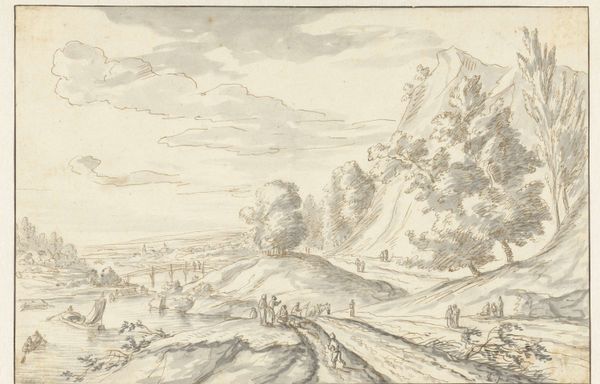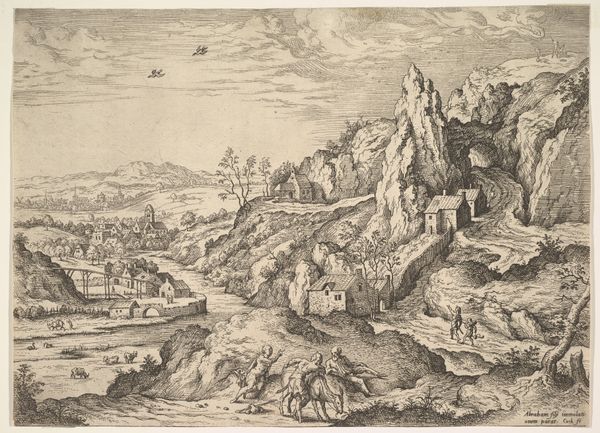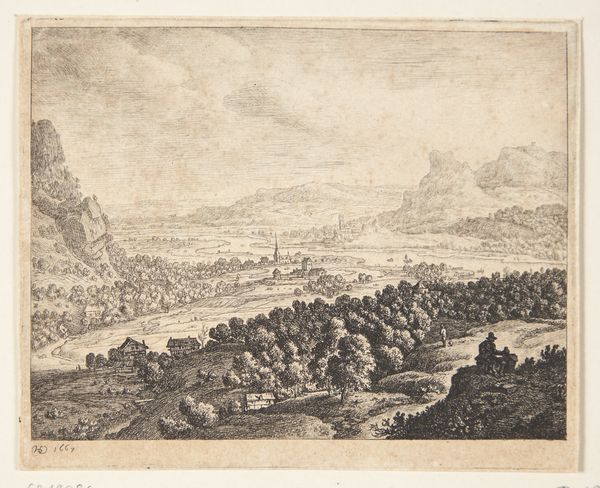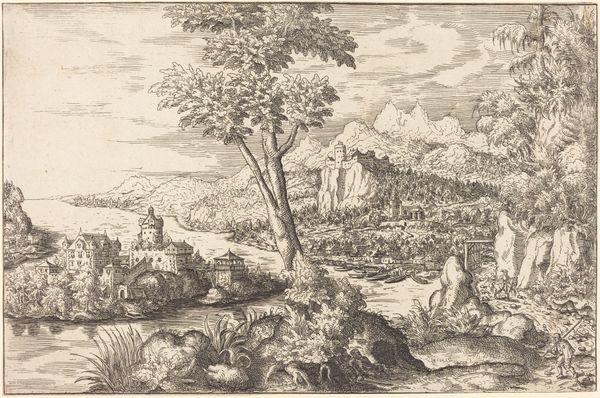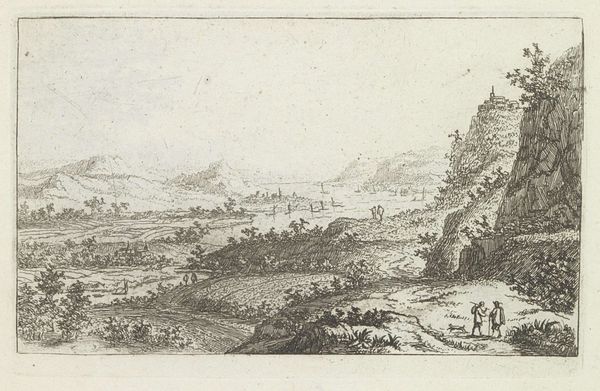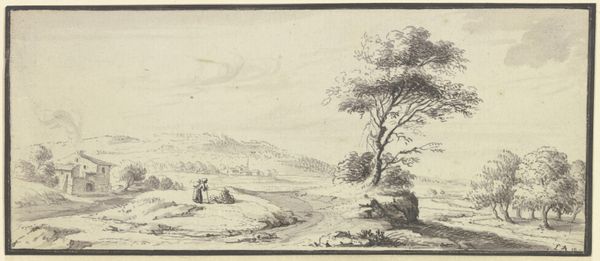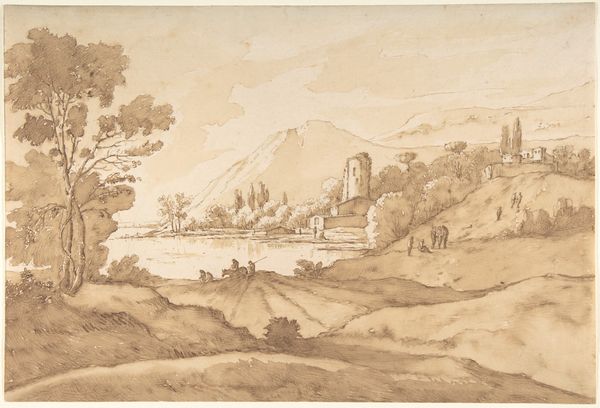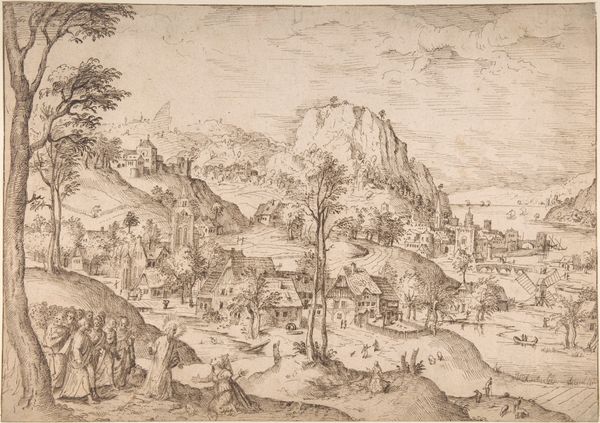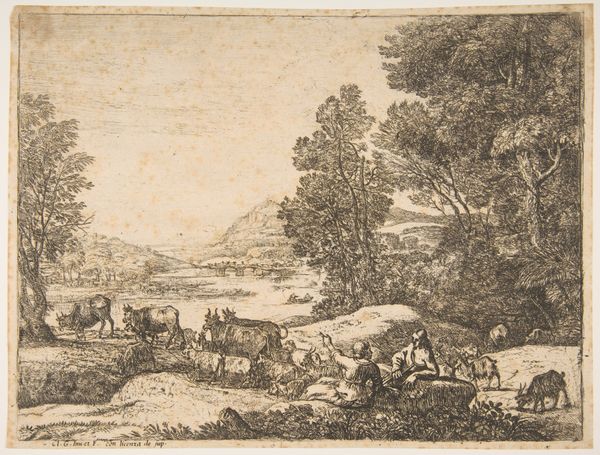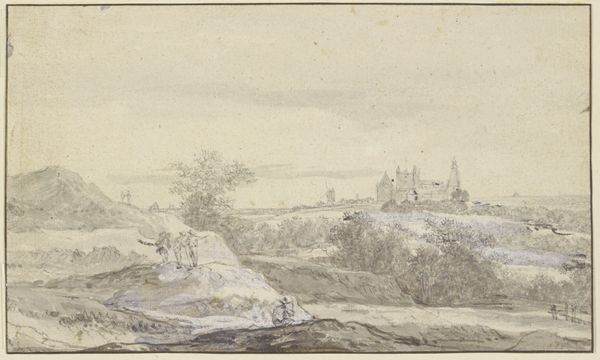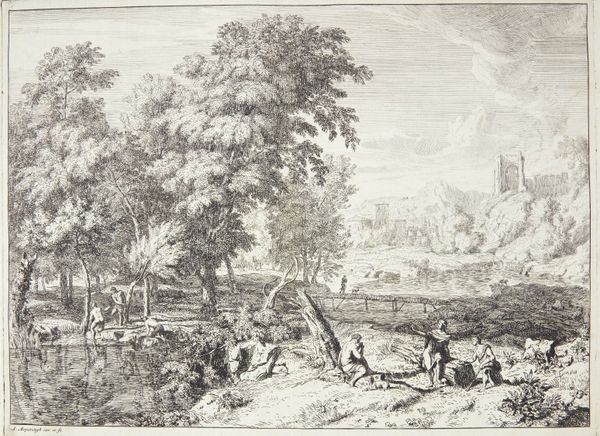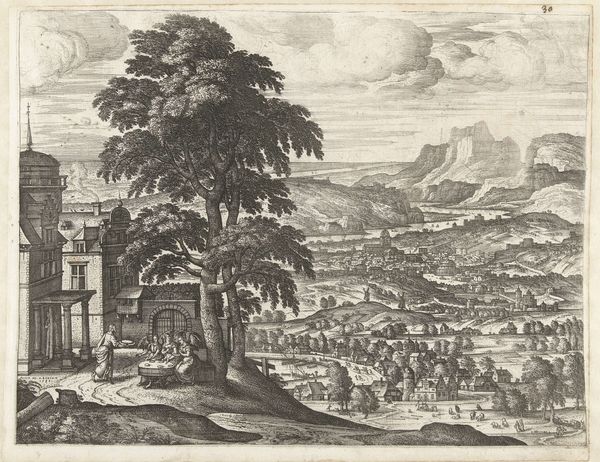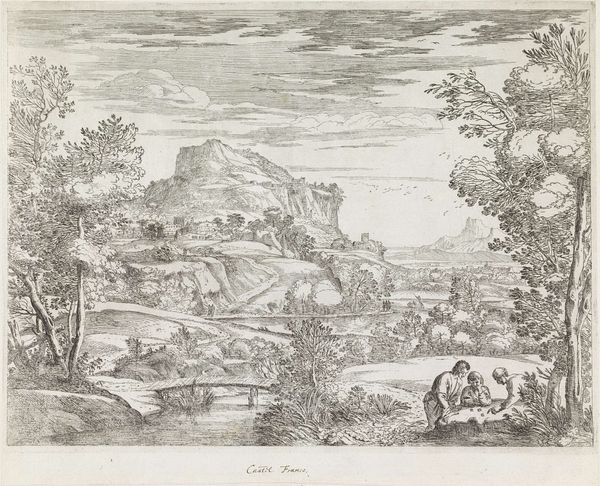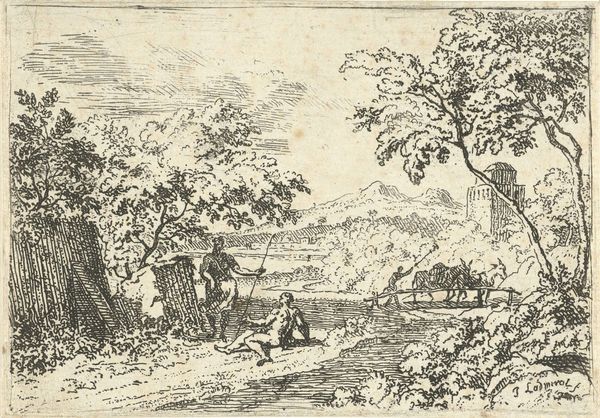
Landschaft mit Dorf, im Vordergrund Reiter und eine Viehherde mit Hirte
0:00
0:00
drawing, ink, indian-ink, pen
#
landscape illustration sketch
#
drawing
#
netherlandish
#
toned paper
#
baroque
#
dutch-golden-age
#
pen sketch
#
pencil sketch
#
landscape
#
personal sketchbook
#
ink
#
indian-ink
#
pen-ink sketch
#
pen work
#
sketchbook drawing
#
14_17th-century
#
pen
#
watercolour illustration
#
sketchbook art
Copyright: Public Domain
Editor: This is "Landscape with Village, in the foreground Riders and a Herd of Cattle with Shepherd" by Josua de Grave, currently at the Städel Museum. It appears to be an ink drawing, and I'm struck by its panoramic composition and how the artist balanced detailed foreground elements with the broader landscape. How do you approach a piece like this formally? Curator: Precisely. The immediate attraction resides in its structural balance. Note the interplay between the foreground – riders and livestock – and the recessive depth achieved through subtle gradations of tone. Observe the economy of line; de Grave captures form and volume with minimal strokes, suggesting depth through delicate shifts in weight. This relates to structuralism, inviting the viewer to decode elements not for inherent meaning but relational position in a self-contained system. How does the treatment of line direct your gaze? Editor: I see how the bolder lines in the foreground draw me in, and then the thinner lines sort of suggest distance and guide my eye back towards the village. Is there significance in his choice to use what appears to be toned paper? Curator: The choice of toned paper contributes to the overall chromatic structure. Rather than a blank white field, this adds an immediate mid-tone. It allows the artist to build from the middle, adding both highlights and shadows to create volume without the harsh contrast we see in other ink drawings. Can we appreciate how the artist masterfully used the ink to play with lights and shadows? Editor: Yes, absolutely. It’s almost like he's sculpting the landscape with ink. It is interesting how this landscape offers a structural reading of the Dutch Golden Age. Curator: Precisely. It underscores how visual structure functions as the artwork's essential language. I appreciate your keen insights. Editor: Thank you, I learned a lot about reading a drawing formally.
Comments
No comments
Be the first to comment and join the conversation on the ultimate creative platform.
